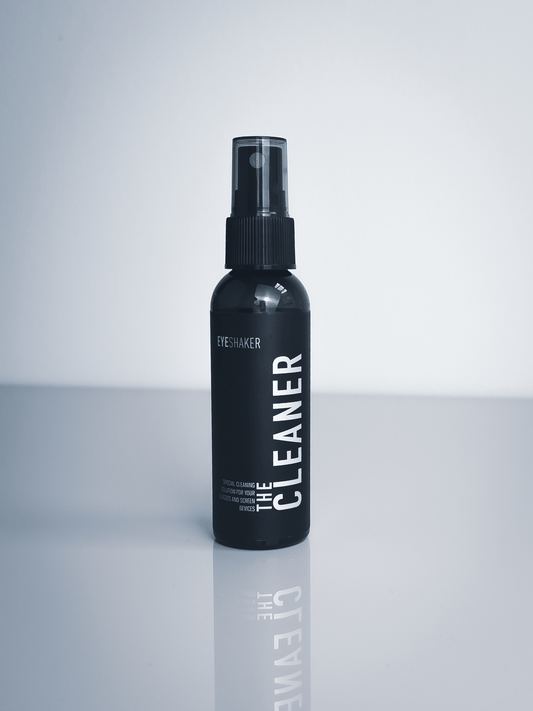Eyeglass cleaning with ultrasonic devices - a professional conclusion

As an optical master business, we would like to share everything you need to know about cleaning glasses with ultrasonic devices. Ultrasonic devices are currently a hot topic as a revolutionary method for cleaning glasses, but do you also know how they work, what advantages and disadvantages they may have, and what specific things you should pay attention to when using them? In this article, you will learn everything you need to know about ultrasonic devices and what you should consider before purchasing an ultrasonic bath.
Cleaning glasses can sometimes be frustrating. The constant wiping with microfiber cloths and glasses cleaning cloths and the use of cleaning sprays is time-consuming and often inefficient. In search of the right method to clean glasses comprehensively, many come across ultrasonic devices. An ultrasonic device, also known as a glasses cleaner, can elevate your cleaning routine to a whole new level.
Let's quickly answer the three core questions about cleaning glasses with ultrasound:
How does an ultrasonic cleaner for glasses work?
Ultrasonic cleaners work with sound waves that create tiny bubbles in the cleaning fluid. These bubbles burst and thus create the cleaning effect, which is also effective in hard-to-reach areas.
How do you use an ultrasound device?
To clean glasses with an ultrasonic cleaner, fill the device with the recommended amount of cleaning fluid, place your glasses in it and start the cleaning cycle. Cleaning in the ultrasonic bath takes a few minutes.
How often can glasses be cleaned in an ultrasound machine?
The frequency with which you should clean glasses in an ultrasonic bath depends on various factors. For example, the type of glasses, the cleaning solution, or the material of the glasses. However, it is generally recommended not to clean the glasses in the ultrasonic bath more than once a week to avoid potential damage.
Advantages and Disadvantages of Ultrasound Devices
ADVANTAGES: Effectiveness: Ultrasonic cleaners remove dirt and deposits thoroughly. Time savings: The cleaning cycle takes only a few minutes. Cleaning result: Very good with proper use, as even hard-to-reach areas can be cleaned.
DISADVANTAGES: Complex requirements for use: Ultrasonic cleaners should not be used without expertise or extensive experience with suitable materials, as not all glasses can be cleaned in an ultrasonic cleaner. Excessive use can damage glasses and surfaces, especially plastic lenses or sensitive coatings. Special care is required for glasses with colored lenses, laser engraving, and delicate materials. Noise & size: The cleaning process is loud, and the devices are often bulky and require a lot of space. Price: Ultrasonic cleaning devices are expensive to purchase and not portable. Maintenance: Ultrasonic baths require regular professional cleaning and maintenance.
The conclusion of a master optician:
If you are not quite sure whether your glasses are suitable for use with ultrasonic devices, if you would like to clean your glasses daily or at least several times a week, and if you prefer to clean your glasses flexibly and easily, it is better to use other glasses cleaning agents and tools.
"We advise you to only use products that are specifically designed for cleaning glasses in order to keep your glasses in the highest quality for as long as possible. Ask your optician which products they recommend for your glasses or trust qualified or certified manufacturers who specialize in glasses cleaning."





